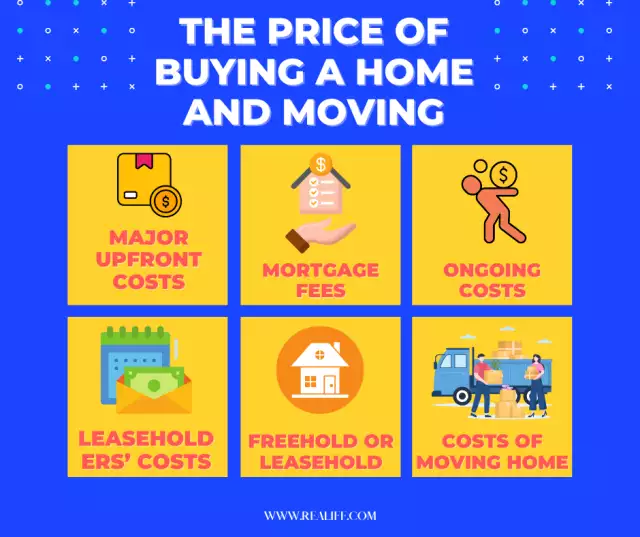The Impact of Home Upgrades on Property Taxes
Upgrading your home can bring a host of benefits, but one less desirable aspect is an increase in property taxes. Any changes to your home that boost its value can result in a higher assessment, leading to higher property taxes. In this article, we’ll explore the types of upgrades that often trigger higher assessments and those that rarely do.
Building Permits:
Building permits can be a red flag for property taxes. If you pull a permit for your home improvement project, the local taxing entity will determine if a higher assessment is justified. On the other hand, if your project does not require a permit, like installing new flooring, it’s unlikely to result in a higher assessment.
Repairs and Replacements:
Replacing or repairing your home shouldn’t lead to higher property taxes. Upgrades such as a new furnace, roof, or windows will improve your home’s livability, but they won’t result in higher assessments since they are considered normal maintenance.
Kitchen Upgrades:
It’s possible to redo your kitchenwithout incurring a property tax hit. If your kitchen remodels do not require a building permit, it won’t result in a higher assessment. However, if the remodel requires permits, such as rewiring or replumbing, your assessment will likely go up.
Expanding Your Home:
Expanding your home will result in higher property taxes. Adding square footage or a new story to your home will increase your property tax bill since the two biggest factors affecting property taxes are the size of the lot and the size of the structure.
Additional Bathrooms and Central Air:
Adding an extra bathroom or central air to your home can result in higher property taxes, even if your square footage hasn’t increased. These upgrades increase the value of your home and trigger a higher assessment.
Other Add-ons:
Not all add-ons to your home will result in higher property taxes. For example, natural gas generators that kick in during power outages are not yet clear if they raise the value of the house. In some cases, assessors are not raising assessments for these upgrades.
Basement and Attic Conversions:
Converting your basement or attic can be a gray area when it comes to property taxes. It depends on the extent of the changes and whether a building permit is required. For example, if you put in a tile floor, you won’t need a permit and your assessment shouldn’t go up. However, if you install sheetrock walls and new electrical outlets, you will need a permit, and your assessment will likely go up.
Frequently Asked Questions:
Will replacing my roof result in higher property taxes?
No, replacing your roof is considered normal maintenance and shouldn’t result in higher property taxes.
What about adding a bathroom to my home?
Yes, adding a bathroom to your home can result in higher property taxes since it increases the value of your home.
Can converting my basement result in higher property taxes?
It depends on the extent of the changes and whether a building permit is required. If you run electrical or ductwork in your basement, your assessment is likely to go up.
What are the factors that can trigger a higher property tax assessment after a home renovation?
The factors that can trigger a higher property tax assessment after a home renovation include obtaining a building permit for the renovation, increasing the square footage of the house, adding extra bathrooms, and central air conditioning, and transforming basements or attics.
Are all home renovations subject to higher property taxes?
No, not all home renovations are subject to higher property taxes. Replacing or repairing things like furnaces, roofs, or windows won't raise taxes since they don't change the value of the house in the eyes of the assessor. Renovations that don't require a building permit, like resurfacing cabinets or installing new flooring, are also unlikely to raise your assessment.
How can I avoid higher property taxes after a home renovation?
You can avoid higher property taxes after a home renovation by focusing on renovations that don't require a building permit, like replacing or repairing things. Avoid expanding the square footage of your house and adding new features that increase the value of your house, like extra bathrooms or central air conditioning.
How much can property taxes increase after a home renovation?
The increase in property taxes after a home renovation can vary depending on the value of the renovation and the location of the property. In New Jersey, for example, property taxes can run 3% of the assessed value per year, so a $50,000 renovation can result in an extra $1,500 a year in property taxes.
Can the dollar value of my building permit determine the tax hit I'll receive after a home renovation?
The dollar value of a building permit doesn't necessarily determine the tax hit you'll receive after a home renovation. The assessor is looking at the value of the renovation and how it has changed the value of your house, not just the dollar value of the building permit. Different contractors may also charge different amounts for the same job, so the assessor may not rely solely on the building permit.
In conclusion, upgrading your home can bring a lot of benefits, but it can also result in higher property taxes. It’s important to consider the type of upgrade you plan to do and whether a building permit is required.

